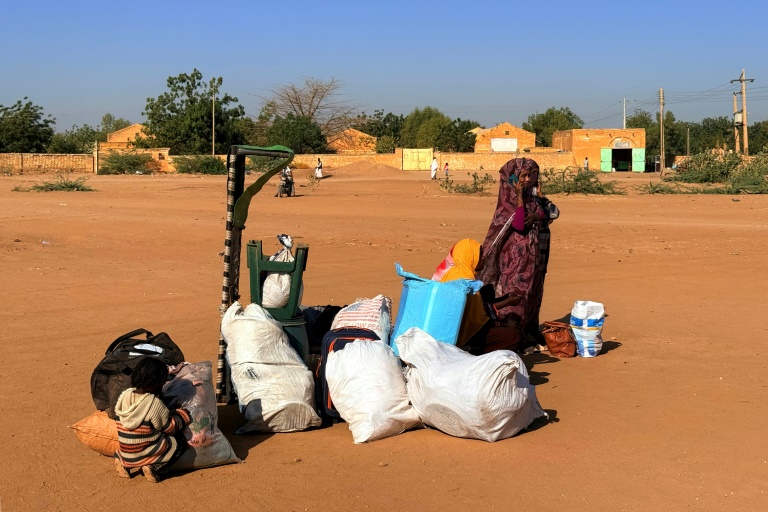For the first time in nearly two years of war, soup kitchens in famine-stricken Sudan are being forced to turn people away, with US President Donald Trump’s aid freeze gutting the life-saving schemes.
“People will die because of these decisions,” said a Sudanese fundraising volunteer, who has been scrambling to find money to feed tens of thousands of people in the capital Khartoum.
“We have 40 kitchens across the country feeding between 30,000 to 35,000 people every day,” another Sudanese volunteer told AFP, saying all of them had closed after Trump announced the freezing of foreign assistance and the dismantling of the United States Agency for International Development (USAID).
“Women and children are being turned away and we can’t promise them when we can feed them again,” she said, requesting anonymity for fear that speaking publicly could jeopardise her work.
Since April 2023, Sudan has been torn apart by a war between its regular army and the paramilitary Rapid Support Forces.
In addition to killing tens of thousands of people and uprooting over 12 million, the war has pushed five areas of the country into famine and nearly 25 million people into acute food insecurity.
In much of Sudan, community-run soup kitchens are the only thing preventing mass starvation and many of them rely on US funding.
“The impact of the decision to withdraw funding in this abrupt manner has life-ending consequences,” Javid Abdelmoneim, medical team leader at Doctors Without Borders (MSF) in Khartoum’s twin city of Omdurman, told AFP.
“This is yet another disaster for people in Sudan, already suffering the consequences of violence, hunger, a collapse of the healthcare system and a woeful international humanitarian response,” he added.
Shortly after his inauguration last month, Trump froze US foreign aid and announced the dismantling of USAID.
His administration then issued waivers for “life-saving humanitarian assistance”, but there have so far been no signs of this taking effect in Sudan and aid workers said their efforts were already crippled.
In what the United Nations has decried as a global “state of confusion”, agencies on the ground in Sudan have been forced to halt essential food, shelter and health operations.
“All official communications have gone dark,” another Sudanese aid coordinator told AFP, after USAID workers were put on leave this week.
The kitchens that have survived “are stretching resources and sharing as much as they can”, he said.
“But there’s just not enough to go around.”
As one of the few independent organisations still standing in Sudan, MSF said it had been fielding requests from local responders to quickly step in.
However, “MSF can’t fill the gap left by the US funding withdrawal,” Abdelmoneim said.
The United States was the largest single donor to Sudan last year, contributing $800 million or around 46 percent of funds to the UN’s response plan.
The UN estimates it currently has less than 6 percent of the humanitarian funding needed for Sudan in 2025.
Over 8 million people are on the brink of famine in Sudan, according to the UN-backed Integrated Food Security Phase Classification.
Famine is expected to spread to at least five more areas of Sudan by May, before the upcoming rainy season is likely to make access to food all the more difficult across the country.
The hunger crisis is already much worse than figures show, according to the UN, with a lack of access to data preventing official famine declarations including in Khartoum.
Now, the situation is likely to deteriorate further.
In tandem with Trump’s decisions, the US-funded early warning system for famines, FEWS Net, has also gone offline. That has raised fears that simply tracking the rapidly worsening famine in Sudan will be made harder.
“What’s most devastating is that so much was promised,” the aid coordinator said.
According to several volunteers, aid agencies had already distributed millions of dollars worth of food, healthcare and shelter assistance — based on US funding pledges — when Trump cut operations.
“That means that some local response is already paid for, for now,” the coordinator continued.
“The fear is what’s coming next. They have the money now, but what about next month? How many will go hungry then?”
Across the country, volunteers in soup kitchens are burning through their last few weeks of funding — terrified of what will happen when it runs out.
“It was already not enough, but at least people were getting something,” the soup kitchen fundraiser told AFP.
“Now things are going from bad to worse. People are malnourished, pregnant women are dying for lack of healthcare, there’s no semblance of life anymore.”







